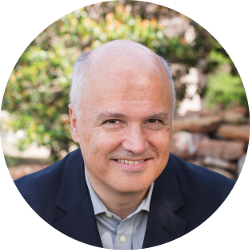Is there evidence of a creator in cosmology? And what caused that big bang you heard in the other room?
One of the fundamental principles of science is that every effect requires a cause. Without this principle, science would not exist. We study why buildings collapse so we can design buildings that don’t collapse. If they could collapse without a cause, there wouldn’t be any point to the study (or to building buildings).
All causes ultimately fall into one of two categories. Either the cause was necessity, or the cause was agency.
Necessity means ‘it simply must be’. A building collapses because the force of gravity, acting on the mass of the structure, exceeds the mechanical strength of the supporting frame. It must collapse.
Unless the frame is strong enough to support the weight.
Have you ever played Jenga? It’s that game where you stack a bunch of blocks of wood to build a tower, then take turns pulling blocks out from the middle of the stack until someone pulls out a block that makes it fall. (Incidentally, the name of the game is derived from kujenga, the Swahili word for ‘to build’.)
If you build the stack and then no one pulls anything out, it will stand forever. Or at least until your two-year-old toddler simulates an earthquake by crashing his Fisher-Price Bubble Mower into your coffee table.
Now this metaphor at once invokes both types of causes. The real earthquake, you can argue, simply must happen. It results from stress induced along a fault line between two tectonic plates that are moving relative to each other. Once the stress builds up enough to overcome friction, the plates shift and the earthquake occurs.
But what caused the plates to be in relative motion? The plate motion is itself an effect that had some other cause. And that cause may well have been caused by something else. But eventually this progression will be traced to a root cause—which is likely to be the origin of the universe.
But in our Jenga example, the root cause was the agency of your toddler. Agency here is “the capacity, condition, or state of acting or of exerting power.”
Someone intervened. Someone outside the system intervened to cause the effect.
Someone, not something. A person is required, because a decision had to be made. If no decision was required, we’re back to necessity being the cause.
And that person had a will. A desire to bring about a particular change.
And power. The power to overcome the forces of nature that enforce the status quo.
And intellect. The intelligence to know how to manipulate the system to bring about a desired change.
And all that came from your little toddler.
In a roundabout way, the beginning of the universe is a little like the end of that stack of Jenga blocks. Something changed, and the effects were profound.
For many centuries, mankind believed (for the most part) that the universe was eternal. This theory required that we also believe that the universe was static, at least on the grand scale.
But then in the early twentieth century we learned that the universe was not static. It’s expanding. And a necessary consequence of an expanding universe is that it had a beginning.
Perhaps you’ve heard of it. They call it “The Big Bang.” The universe wasn’t. And then, bang! It was.
Now, if you’re an atheist reading this, you have a lot of explaining to do. What caused this effect?
Necessity? If the universe simply must be, why wasn’t it already? What changed to make it necessary now when it wasn’t necessary before? What caused that change?
Necessity presumes a preexisting system. The nature of the system creates the necessity. But the universe didn’t exist. So nothing in the (nonexistent) universe can reasonably cause the universe to come to exist. The cause must be outside the system … outside the universe … outside of nature … super natural.
So was it agency? Did someone outside the universe cause it to begin?
Like your toddler, that someone must be capable of making a decision.
He must have a will—a desire to bring about a particular change.
He must be powerful—more powerful than the entire scope of the universe he created.
And he must be intelligent—more intelligent that we can begin to conceive if he is to be able to create all that we see (and even us) out of nothing.
Which is it, necessity or agency?
Well, we can’t prove either. There’s no way for us to observe the beginning of the universe to see what actually happened, and no realistic way for us to reproduce the event in a laboratory. (We might have the will, but we don’t have the power or the intellect.) So choosing to believe either theory requires an element of faith, of believing something we can’t prove.
The question is, which requires the larger leap of faith? To believe that your stack of Jenga blocks spontaneously exploded all over your living room? Or to believe that your toddler smacked his Bubble Mower into the coffee table?
What caused that big bang you heard in the living room?
And God said, “Let there be light,” and Bang! There was light. (And it was a big bang.) Genesis 1:3 SMCV (Steve’s More Colorful Version)
